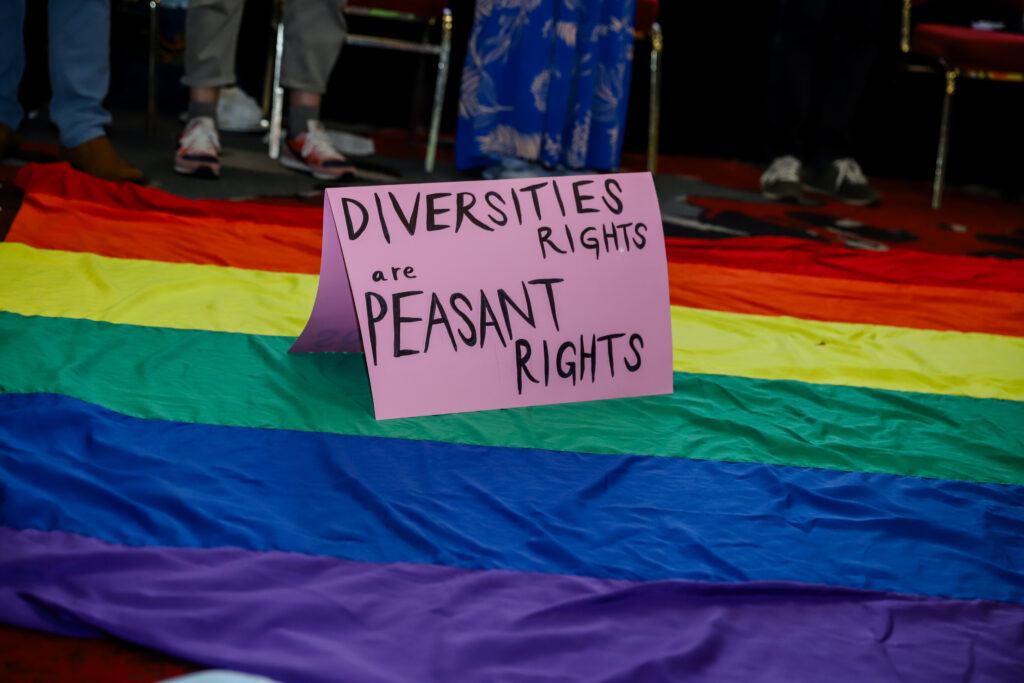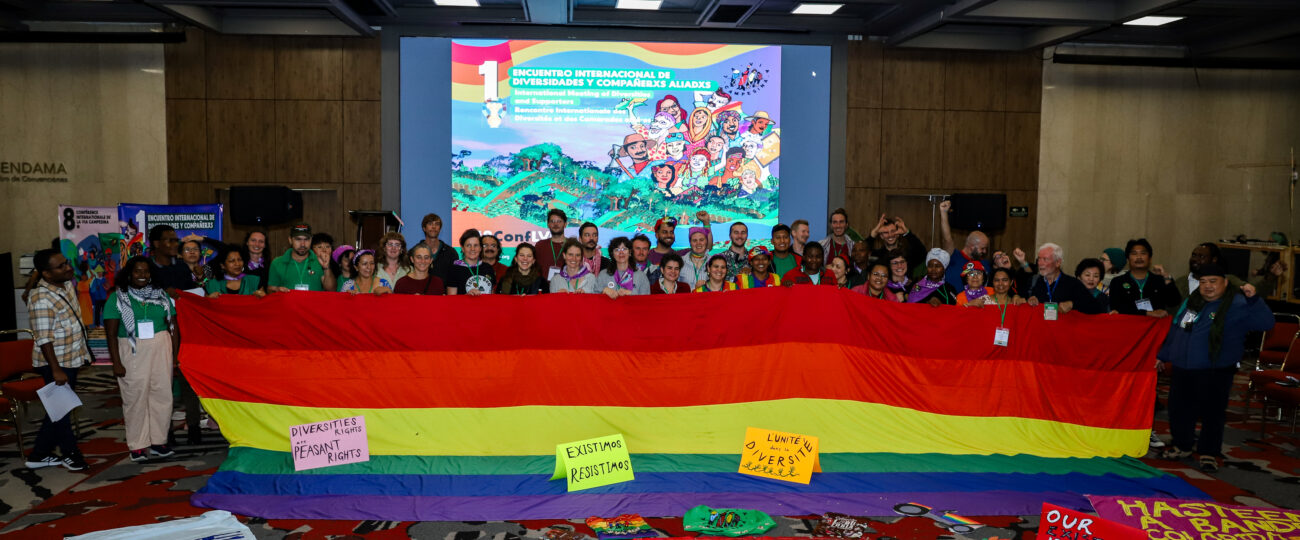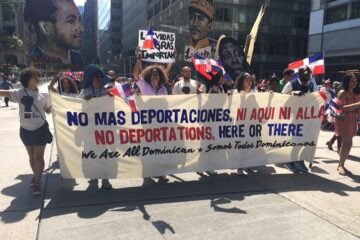This June, marked by the struggles for LGBT+ pride and the fight against LGBTphobia, we interviewed a South African peasant activist about the reality of this agenda in her country. Enny Myambo is engaged with the Landless People’s Movement (LPM), a South African peasant organization associated with La Via Campesina. LPM struggles for land and agrarian reform in South Africa.
“I am a farmer, seeds are my heritage. I defend them, I grow them, I share them and keep them alive,” she says. In this interview, Enny talks about the context of the LGBT+ struggle in South Africa and its relationship to the feminist struggle.
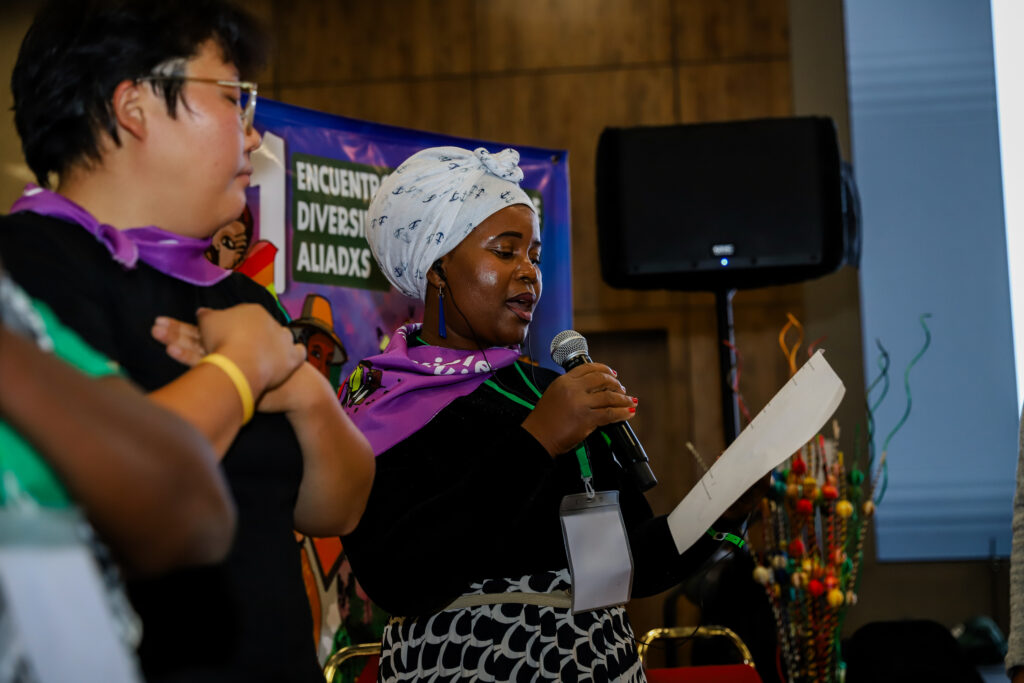
Since 1996, discrimination based on sexuality has been a crime under South Africa’s constitution, making it the first country in the world to formally protect the rights of LGBT+ people. Can you tell us what this means in practice? What progress has this recognition brought about, and what are the current challenges in this sense?
LGBT+ people in South Africa have the same legal rights as non-LGBT+ people. Human rights are considered so important that they cannot be limited or suspended under any circumstances. People are free to identify the way they want. They can engage in sexual activities and relations with any partner of their choices without being criminally charged, which is not true in other countries. Besides, people are allowed to engage in same-sex marriages. This means that people cannot be discriminated against based on their sexual orientation and preferences.
There are however challenges due to societal stereotypes and cultural and religious beliefs. In some societies, it is seen as a sin by Christian communities, as well as by African beliefs, and so people are unable to come out.
There is still violence against LGBT+ people in some areas. This is also because some people hide in their communities, while others recognize their status. These people are even more discriminated against than those who keep their identity secret.
What is the connection betweeen the LGBT+ movement and the feminist struggle? What are the movement’s main agendas today?
In the case of LGBT+ people, prejudice and violence have caused some of them to leave organizations, family gatherings, and even their community activities. The LGBT+ struggle is related to the feminist struggle because through feminism, people within the organization are understanding much more about LGBT+ rights.
In the early days of the movement, LGBT+ peasants did not consider themselves feminists, but they advocated for LGBT+ struggles. With time, feminists working with the LGBT+ struggle in LVC have allowed them to have their own articulation. This has pushed the debate forward, opened space, and gave tools for LGBT+ people.
A small number of LGBT+ people participated in La Via Campesina’s conference and spoke out to make a more inclusive declaration. LVC has allowed LGBT+ activists to have their articulation in order to push the debates forward and open space for them, fighting for LGBT+ people to be treated as human being and to achieve a dignified place in society.
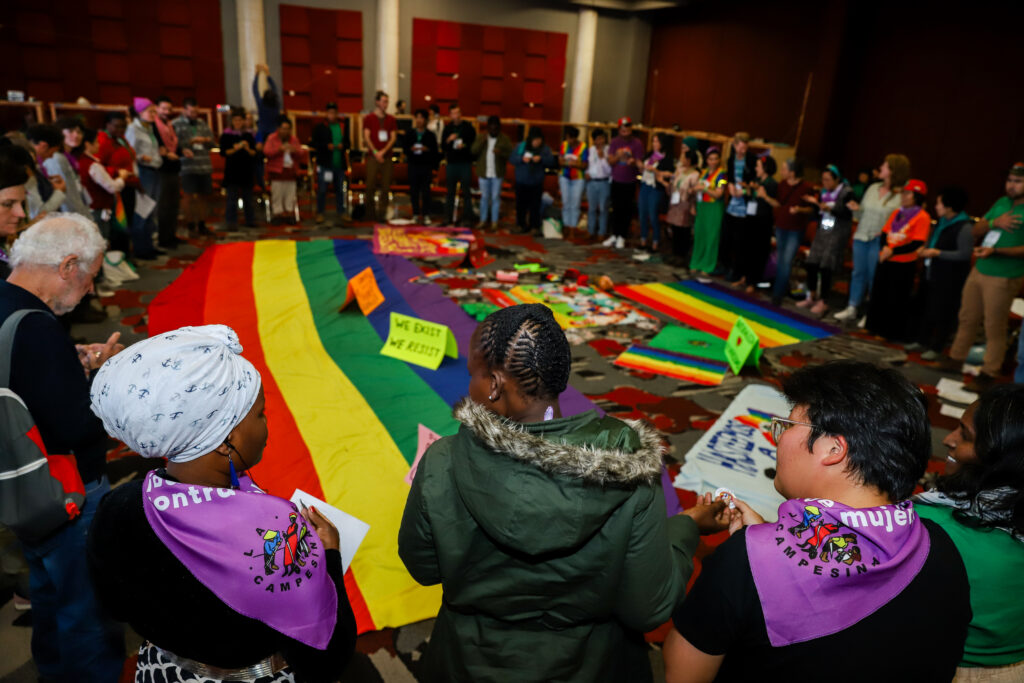
Although there are still challenges, South Africa represents hope for LGBT+ people in many other African countries who face persecution, criminalization, and violent penalties, such as in Uganda and Nigeria. How is this agenda connected to that of other African countries? How does solidarity take place between people from different countries?
Solidarity is all about awareness of shared interests, objectives, standards, and sympathies, creating a psychological sense of unity of groups. Solidarity between different countries can create ties in a society that binds people together as one. This can be done by organizing team building activities, facilitating knowledge sharing sessions, or even implementing mentorship programs.
In some countries, more especially in African countries, laws forbid LGBT+ people from accessing their rights, and in those cases where they do have legal access, traditional beliefs and practices prevent them from exercising these rights. LVC understands that the liberation of the LGBT+ people is not an individual process, but a collective one. It implies the freedom of the peoples, which lies in the approach of peasant and popular feminism that identifies the reality of people living and working in the countryside.
For some years now, La Via Campesina has been advancing an LGBT+ perspective based on the many diversities of rural people. What has this struggle been like in rural areas in South Africa?
The struggle tries to amplify the productive work LGBT+ people carry out and which is yet to be recognized by the people within the rural areas. More specifically in rural areas, it is not easy for LGBT+ people to suppress their feelings in face of other people. LGBT+ people need to walk together as equals in the community for more dignity and justice.
